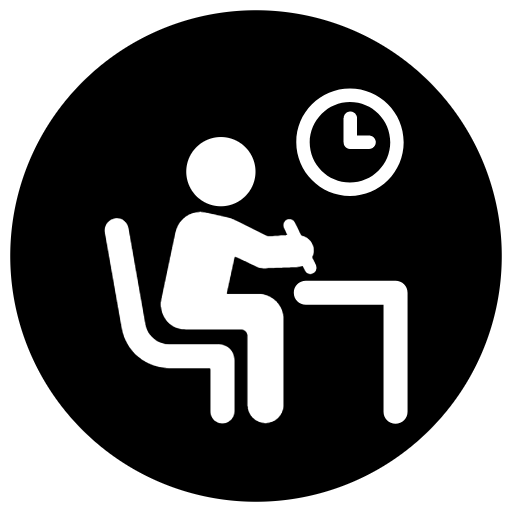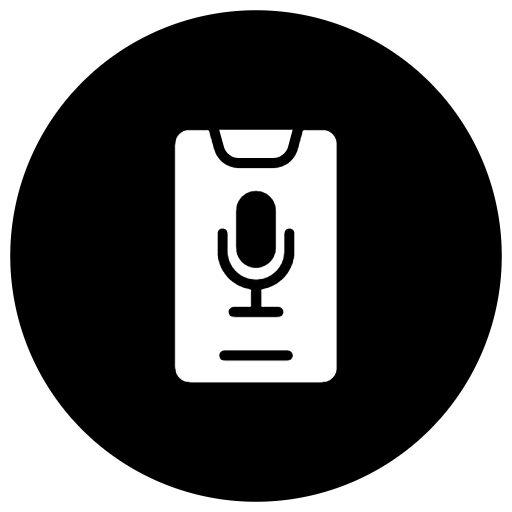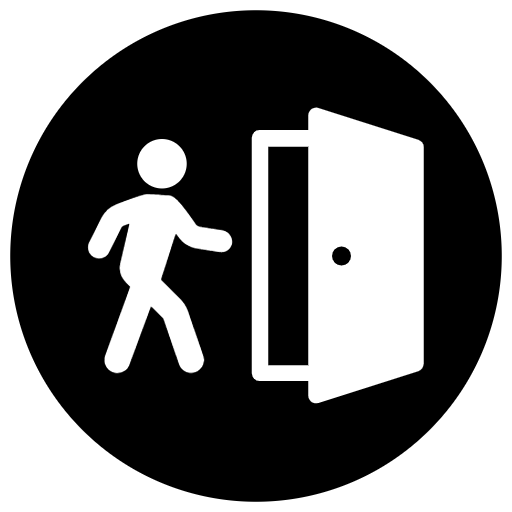Students with Disabilities
Are you a college student with disabilities? Do you have questions about your rights while you are in college?
Colleges must treat students with disabilities as equals to students without disabilities. Every college, whether it is a community college or a private university, must follow this rule. The goal of this information packet is to teach you about your educational rights and how to stand up for them.
From High School to College
Public elementary, middle, and high schools are required to identify students whose disabilities affect learning and provide them with a free and appropriate public education (FAPE). Public schools must also accommodate all students with disabilities. Schools often fulfill their responsibilities by developing an IEP (an individualized education plan) or a Section 504 plan.
Colleges have different responsibilities to students with disabilities. For instance, colleges do not have to identify students with disabilities or provide students with FAPE. Additionally, an IEP or Section 504 plan does not follow a student from high school to college. However, colleges are prohibited from discriminating against students with disabilities, and must work with students to ensure their disability-related needs are met in the classroom and in student housing.
If you need accommodations during your time in college, you need to request them yourself.
Are You Protected From Discrimination Under the Law?
 If you have a mental health disability or other health condition that affects your day-to-day living, and you meet the school’s eligibility criteria for admission, you are probably a person with a disability protected by the law. You do not lose the protection of the law if you use medication or equipment like a wheelchair or hearing aids to minimize or eliminate the effect of your condition on your daily life.
If you have a mental health disability or other health condition that affects your day-to-day living, and you meet the school’s eligibility criteria for admission, you are probably a person with a disability protected by the law. You do not lose the protection of the law if you use medication or equipment like a wheelchair or hearing aids to minimize or eliminate the effect of your condition on your daily life.
 You are not protected under the law if your health condition is temporary and will heal fully. For example, a broken bone or a sprain is not a disability. Also, the law does not recognize ordinary bad vision as a disability.
You are not protected under the law if your health condition is temporary and will heal fully. For example, a broken bone or a sprain is not a disability. Also, the law does not recognize ordinary bad vision as a disability.
Your Rights
Your school must treat you the same as it treats students without disabilities. Specifically:
- Schools cannot make enrollment decisions based on disability, or make rules that prevent or limit students with disabilities from attending the school.
-
- Example: A school cannot ask if you have a history of mental health disabilities, work with a service animal, or if sign language is your primary language on its application. These questions identify you as a student with a disability, which the school is not allowed to consider when deciding whether to admit you to the school.
-
- School buildings and services must be accessible.
-
- Example: A school must have accessible transportation services. It would be a violation of this rule if a student who uses a wheelchair could not ride the university bus system.
-
- Schools must accommodate students with disabilities.
-
- Examples: A student with anxiety disorder takes her tests in a private room. A school must provide a Deaf student with sign language interpreter services or other communication aid during classroom time. Similarly, a school must provide textbooks or reading materials in an alternate format for a student with a learning disability.
-
Reasonable Accommodations/Academic Adjustments
It is your responsibility to tell the school what accommodations or adjustments you need because of your mental health condition. You should make your needs known to the disability services office as early as possible. A good time to begin talking about the accommodations and adjustments you will need is when you enroll. All accommodations and/or academic adjustments must be provided at no cost to you.
Your school should have written instructions on how to request accommodations and adjustments. If you are not already connected to the disability services office, this information may also be available on the student services or accessibility page of your school’s website. If your school does not have instructions, there is a sample letter at the end of this document you can use to request accommodations and adjustments.
A school does not have to make modifications to the essential nature of an academic program. For example, it is reasonable to ask the school for more time on a test. It is not reasonable to ask to answer fewer questions than other students or change the test questions.
If you ask for accommodations related to your mental health condition, your school may ask you for documentation. You may be asked to provide documentation prepared by an appropriate professional, such as a medical doctor, psychologist or other qualified diagnostician.
Documentation may have to include one of the following:
- Diagnosis of your current disability;
- Date of the diagnosis;
- How the diagnosis was reached;
- Credentials of the professional;
- How your disability affects a major life activity; and
- How the disability affects your academic performance.
The documentation should provide enough information for you and your school to decide what is a reasonable accommodation or academic adjustment.
Although your IEP and Section 504 plan do not follow you to college, it may be helpful to provide your most recent plan to your school. It will help the school understand what accommodations have helped you be successful in the past.
You may also want to ask your high school for copies of the results from your most recent evaluations. If you need a new evaluation, you are responsible for the cost. If you are eligible for services through your state vocational rehabilitation agency, you may qualify for an evaluation at no cost to you. You may locate your state vocational rehabilitation agency.
Examples of accommodations/academic adjustments
Additional time to complete exams because you experience anxiety that interferes with your testing performance. It may also be helpful if you have difficulty writing, learning disabilities, or other condition that interferes with testing performance.
 A private environment or alternate location to take exams because testing anxiety or stress causes verbal or physical tics during testing that are distracting to other students.
A private environment or alternate location to take exams because testing anxiety or stress causes verbal or physical tics during testing that are distracting to other students.
 Permission to record lectures. You have a learning disability or other condition that limits the ability to receive information and/or take notes during class. Or your psychiatric medication causes you to be groggy and unfocused during certain periods of the day.
Permission to record lectures. You have a learning disability or other condition that limits the ability to receive information and/or take notes during class. Or your psychiatric medication causes you to be groggy and unfocused during certain periods of the day.
 Modified deadlines, reduced course load, alternate work assignments, or excused absences while you seek mental health treatment, if you miss school because of a hospitalization, or experience a flare up or worsening of your condition that keeps you out of school.
Modified deadlines, reduced course load, alternate work assignments, or excused absences while you seek mental health treatment, if you miss school because of a hospitalization, or experience a flare up or worsening of your condition that keeps you out of school.
Assistive technology. “Smart pens,” screen magnifiers, text-to-speech software are some examples.
Note taker. May be helpful if you have a physical impairment that makes writing or typing difficult, have difficulty hearing, or your learning disability impedes note taking.
 Permission to change roommates or rooms (to a room nearest the bathroom or entrance for example), or allowing an aide or helper to stay in your room if you need assistance transferring from a wheelchair to the bed, assistance with bathing, dressing, etc.
Permission to change roommates or rooms (to a room nearest the bathroom or entrance for example), or allowing an aide or helper to stay in your room if you need assistance transferring from a wheelchair to the bed, assistance with bathing, dressing, etc.
Service animal. You may ask for your service animal to live in your dorm room and accompany you everywhere you go on campus, including the cafeteria and other places that have “no pets” or “no animals” signs.
 Retroactive withdrawal from courses if academic difficulties were caused by depression or other mental health condition, and/or a leave of absence.
Retroactive withdrawal from courses if academic difficulties were caused by depression or other mental health condition, and/or a leave of absence.
These are just examples. You may ask for an accommodation even if it is not listed here.
Student codes of conduct and mental health disabilities
As a student with a disability, including mental health disabilities, you still have to follow the student code of conduct. Behavior caused by or related to mental health disabilities may put you at risk of discipline. You may ask for reasonable accommodations to help you adhere to the code of conduct.
If you disclose your disability for the first time after learning that you have violated the code of conduct, the school does not violate your rights if it continues with disciplinary proceedings.
It is still a good idea to disclose your disability and request accommodations that will help you follow the code of conduct in the future. It may help the school better understand why you behaved the way you did, and may open the door to a non-disciplinary resolution.
If you disclose your disability, the school is allowed to ask that you provide medical documentation of your disability. The school may only ask for enough documentation to confirm your disability and identify appropriate accommodations for you. You cannot be required to turn over your entire mental health or medical file.
It matters when you request an accommodation
Here are two examples of students who disclose their mental health disabilities and request accommodations at different times:
 John has bipolar disorder. It has been well controlled until his senior year of college. Lately, John has sometimes talked uncontrollably and his judgment has seemed erratic. In group discussion, he becomes angry and puts down other students who disagree with him. One day after class, John’s professor tells John that his behavior has been inappropriate and he may report John to the dean’s office. John agrees that he has acted inappropriately and shares that he thinks he needs to see his doctor.
John has bipolar disorder. It has been well controlled until his senior year of college. Lately, John has sometimes talked uncontrollably and his judgment has seemed erratic. In group discussion, he becomes angry and puts down other students who disagree with him. One day after class, John’s professor tells John that his behavior has been inappropriate and he may report John to the dean’s office. John agrees that he has acted inappropriately and shares that he thinks he needs to see his doctor.
The next day, John provides disability services with documentation from his doctor that he has started a new medication that should eliminate his symptoms in six to eight weeks. The doctor recommends that John continue with school, and suggests that John meet frequently with his professors about projects and deadlines.
Disability services arranges a meeting with John’s professors to discuss how they can all work together to help John be successful in the classroom. Disability services also agrees to help John arrange frequent meetings with his professors. The plan works and John graduates with honors.
 Madeline enrolls in school and discloses her bipolar disorder to disability services. She does not request accommodations.
Madeline enrolls in school and discloses her bipolar disorder to disability services. She does not request accommodations.
During the semester, Madeline meets with her professor about her grade on an essay. The professor provides Madeline with some constructive criticism. Madeline becomes angry and yells and curses at the professor. Soon after, Madeline is told she has been expelled – the same punishment given to any student who yells or curses at a professor.
Madeline appeals her expulsion. She tells the disciplinary committee that her outburst was a result of her bipolar disorder, which makes it hard for her to control her temper when she is feeling extreme stress. Madeline says in the future, she will excuse herself from the classroom or professor’s office if she feels that the stress may cause inappropriate behavior.
The school does not reverse the expulsion. The code of conduct applies to all students, even students with disabilities.
Involuntary leave from school
If you have been asked to leave your school, you may be provided with a hearing or some sort of appeal process. During the appeal, it will be helpful for you to show that you can comply with conduct rules in the future with specific supports and/or accommodations in place. If the school decides to place you on an involuntary leave or evicts you from school housing, it should support its action with concrete evidence that there are no accommodations that would allow you to remain safely in school.
After you are placed on leave, you may later request to return to school. You should be prepared to show that you are not a threat to the health and safety of yourself or others, which may be demonstrated with proof of active care and treatment from mental health professionals.
Compensatory Education
Compensatory Education is a community college program for adults with intellectual disabilities, including those caused by head injuries. It teaches basic information and skills to help the student to be as independent as possible. Like all college programs, compensatory education classes and the facilities where they are taught must be accessible for students with disabilities. You may ask for accommodations for a disability such as having a service animal in class or help with taking medication.
Resources
Your first stop when you are having trouble related to your disability should be your school’s disability services office or staff person. The disability services staff is dedicated to helping students with disabilities succeed.
FERPA – the Family Educational Rights and Privacy Act
As a student, you have a right to see your educational records and to ask your school to correct any records you believe are inaccurate or misleading. You may already be familiar with this law if you were asked to sign a “FERPA release” in order to get a copy of your IEP and evaluations from your high school to provide to your college disability services office. You may also want to invoke your FERPA rights if you need access to your educational records to prepare for a disciplinary hearing. You may learn more about FERPA on the Department of Education website.
Learn more about your rights and find support
The National Alliance on Mental Illness (NAMI), sponsors campus NAMI chapters and provides helpful information for students with mental health conditions on the “NAMI on campus” section of its website.
The Bazelon Center is an advocacy group that has published suggested policy for how schools best work with students with mental health disabilities in the classroom. You can find the campus mental health section of the Bazelon Center website by clicking on the community integration link on the homepage, and then on the campus mental health link.
Other resources
Vocational Rehabilitation (VR) is a State agency that helps people with disabilities prepare for and find work. All of its services are free. If higher education is in your plan for employment, VR may help you pay for school. Learn more about VR.
The Job Accommodation Network is a federal agency that helps people identify and implement reasonable accommodations. All of its services are free. Learn more about the Job Accommodation Network.
The Office of Civil Rights at the federal Department of Education (“OCR”) is a federal agency that enforces the rights of students with disabilities. OCR provides information about the educational rights of students with disabilities online.
Complaining Against Your School
If your school has violated your rights, you may complain to the Office of Civil Rights
(OCR) at the federal Department of Education. OCR can be contacted by phone at (202) 453-6020, (800) 877-8339 (TDD), or by e-mail at OCR.DC@ed.gov. You may also visit the OCR webpage. There are strict deadlines for filing a complaint with OCR.
You may also complain to the U.S. Department of Justice (the DOJ). The DOJ enforces Title II and III of the ADA, which apply to public and private higher education. The form for you to fill out is on the DOJ’s website. If you have trouble filling out the form you may request assistance by calling (800)-514-0301 (voice) or (800)-514-0383 (TTY). There are deadlines to file a complaint with DOJ.
College Checklist
High School
Sophomore year (or age 14)
- If the student has an IEP and is 14 years old, his or her IEP includes a statement about the student’s goals for education, employment, and living arrangements after high school.
- If the student wants to go to college or pursue vocational training, it is identified in the IEP.
Junior year (or age 16)
- At age 16, the IEP includes “transition services” that help the student reach the goals he or she has set for after high school.
- The student requests Vocational Rehabilitation services. Does not matter if the student has an IEP; all people with disabilities are eligible.
(VR may help pay for college or training!)
During college visits and tours
- Ask the tour guide about accessibility of the campus or referral to staff who knows about accessibility.
- Visit the disability services office. Request information about accommodation and academic adjustment policies.
- Some colleges have student organizations of students with disabilities. Meet with one of the students to get the scoop on what it’s really like to be a student with a disability at this school.
End of senior year
- Request copy of most recent IEP or Section 504 plan and evaluations.
After Enrollment
- Begin reasonable accommodation process.
- Immediately follow up with disability services with any problems regarding accommodations or academic adjustments.
- Meet with disability services at least once a semester to check in.
